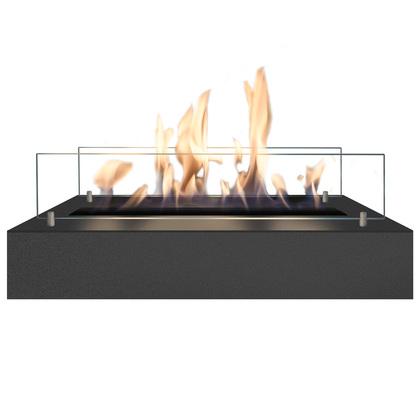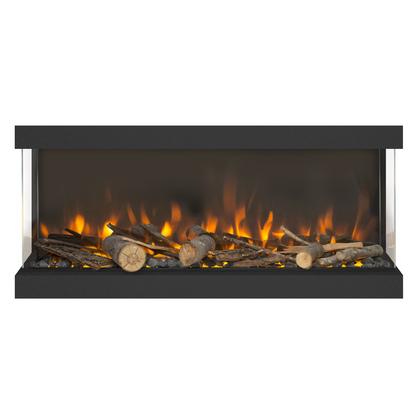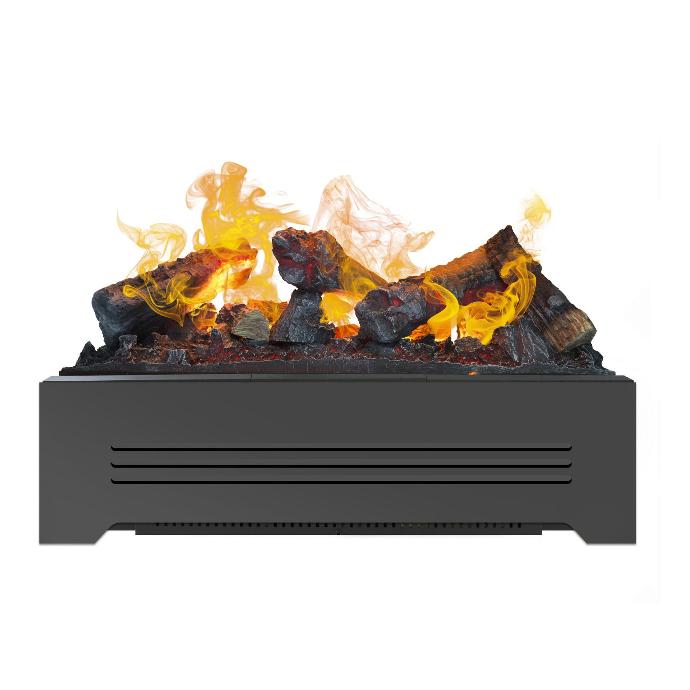The Advertising Code Committee (RCC) has ruled in favor of Milieu Centraal, allowing the organization to proceed with its awareness campaign “Honest about Wood Burning.” It is correct that 23% of particulate matter emissions (particles smaller than 2.5 micrometers) in the Netherlands originates from indoor wood burning.
The choice to burn wood or not is yours. However, the emissions are not just a nuisance—they are harmful to your health. More harmful even than the diesel cars we collectively consider dirty.
Wood burning is extremely harmful to health
The particulate matter released by burning wood is more harmful than that from diesel engines. Wood smoke is twelve times more harmful than cigarette smoke (at the same smoke density). In addition to fine particles and the even more dangerous ultrafine particles, burning wood also releases other toxins such as PAHs, VOCs, dioxins, carbon monoxide, and acrolein. These substances can cause a wide range of health issues and reduce life expectancy.
Modern wood stoves may be cleaner than older models and open fireplaces, but they still emit more particulate matter per hour than a fuel-powered car. In fact, wood burning accounts for six times more particulate matter emissions than all passenger cars in the Netherlands combined. The average wood stove causes over fifty times more health damage than the average fuel-powered car.
RCC: Milieu Centraal can continue awareness campaign
The RCC has issued a ruling in a dispute between the Dutch Fireplace and Stove Industry (NHK) and Milieu Centraal. The NHK’s complaint against the “Honest about Wood Burning” campaign has been largely dismissed. Milieu Centraal may continue its mission to inform the public about the negative effects of wood burning.
Information campaign remains permitted
According to the RCC, Milieu Centraal acts within its role as an independent knowledge institute. The organization has the right to raise awareness of the consequences of wood burning and to encourage behavioral change. The NHK, which viewed the campaign as a threat to its commercial interests, was not upheld on most points.
Milieu Centraal wins on five out of seven points
The RCC ruled in favor of Milieu Centraal on the following issues:
- Not a government body: Milieu Centraal is independent and does not need to state this further.
- No obligation to nuance about modern wood stoves: The organization may base its message on average Dutch household situations.
- Comparison to cigarette smoke is allowed: This analogy is acceptable within the context of raising awareness.
- Use of reliable data: Milieu Centraal uses current figures from the independent TNO stove model.
- Correct use of statistics: The RCC confirms that the pie chart used is based on official data from the Emissions Register. The 23% share of indoor wood burning is correctly presented.
Two advisory comments
While most objections were dismissed, the RCC gave two non-binding recommendations:
- In the image of the “jar of particulate matter,” it should be made clear that it visualizes emissions through the chimney.
- It is recommended to mention that further research is needed into the long-term health effects of wood smoke.
Milieu Centraal has indicated it will incorporate these clarifications on its website.
Wood smoke and health
Despite the debate on phrasing and interpretation, one fact remains: wood burning causes particulate emissions. These particles can seriously impact public health, including:
- Cardiovascular disease
- Respiratory illnesses
- Lung cancer
- Chronic bronchitis with long-term exposure
Milieu Centraal continues its mission to inform the public about these risks.
Alternatives to wood burning are available
Do you enjoy the cozy atmosphere of a “real” fireplace? Enchanting flames, comforting radiant heat? You don’t have to compromise to burn a truly clean fuel!
Take the Stoove stove, for example. Its combustion is so clean that it doesn’t even require a flue or chimney. This stove costs a fraction of a traditional wood stove and burns a fuel that is cheaper than wood.



